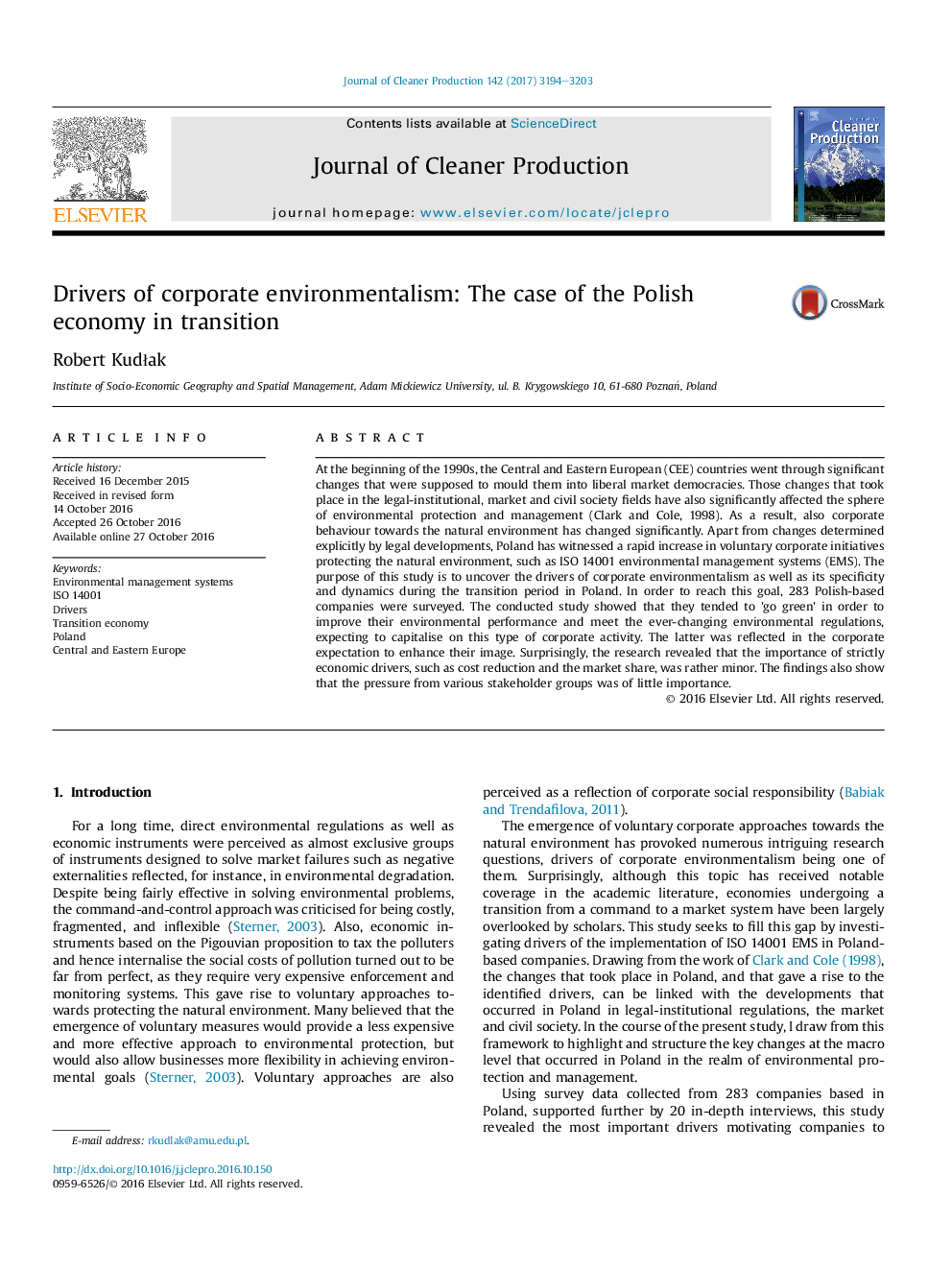ترجمه فارسی عنوان مقاله
رانندگان محیط زیست شرکتی: مورد اقتصاد لهستان در حال گذار
عنوان انگلیسی
Drivers of corporate environmentalism: The case of the Polish economy in transition
| کد مقاله | سال انتشار | تعداد صفحات مقاله انگلیسی |
|---|---|---|
| 89506 | 2017 | 10 صفحه PDF |
منبع

Publisher : Elsevier - Science Direct (الزویر - ساینس دایرکت)
Journal : Journal of Cleaner Production, Volume 142, Part 4, 20 January 2017, Pages 3194-3203
ترجمه کلمات کلیدی
سیستم های مدیریت محیط زیست، ایزو 14001، رانندگان، اقتصاد گذار، لهستان، اروپای مرکزی و شرقی،
کلمات کلیدی انگلیسی
Environmental management systems; ISO 14001; Drivers; Transition economy; Poland; Central and Eastern Europe;

